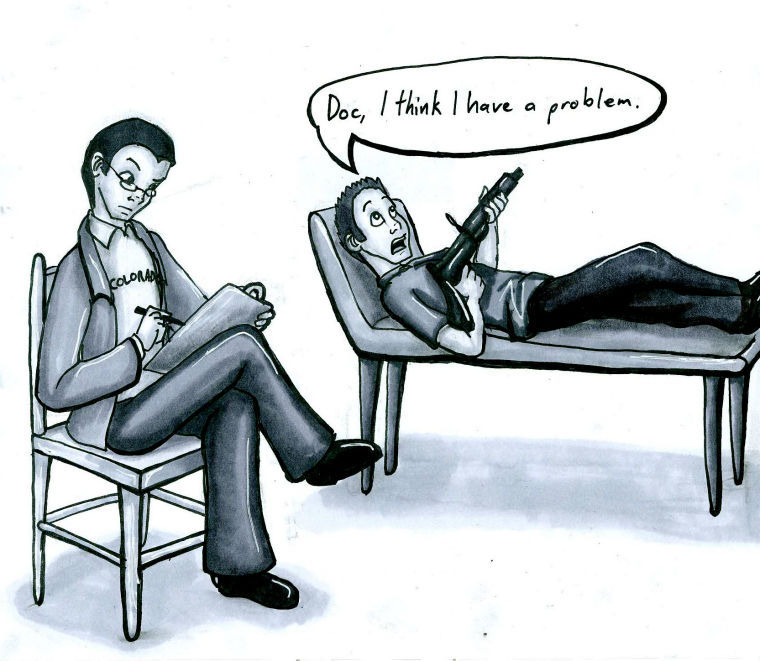Mental healthcare is the key to gun control
March 26, 2013
Guns don’t kill people. People kill people.
This is the message that some are finally getting.
On March 12, state officials put aside $20 million to revamp Colorado’s mental-health system as part of a plan introduced by Gov. John Hickenlooper in January, according to Jordan Steffen and Yesenia Robles of the Denver Post. While specific plans have not been made, so far about half the money is designated for new crisis-stabilization centers.
Colorado is no stranger to gun violence. With Columbine to the Aurora theater shooting, Colorado has reason to take action. While I don’t support much of the gun ban legislation being passed, including a ban on ammunition magazines holding more than 15 rounds, I applaud Colorado for finally addressing a need that has long been swept under the bureaucratic rug: mental health services.
When a shooting occurs, the most asked question is why? The answer is inherently illogical. Why do some people wake up and decide to shoot up a movie theater? Why do some people wake up and decide to shoot themselves? A connection often ignored between gun violence and gun violence prevention is mental illness.
Guns are not the why; they are only the how. Guns do not walk into a school and shoot people; there is a person behind that gun on whom we should be laying blame. Instead of simply preventing the use of guns, shouldn’t we alternatively focus on who is using those guns?
Here’s the problem: It seems that every time a budget needs to be cut, mental health services are the first to go. Don’t worry, though, because Illinois is ranked No. 1 in mental health care–budget cuts, that is. An April 2012 article by Lacy Schley and Veronica J. Smith of Medill Reports reported that Hugh Brady, president of the Illinois board of National Alliance on Mental Illness (NAMI), said that by the end of [2011], Illinois came in at No. 1 for mental health budget cuts, totaling more than 31 percent.
NIU has been marred by gun violence. It is a stain in our history that can never be washed out. That’s exactly why we are the population that should be proactive and advocating of funding mental health services. While we may disagree on ways gun violence can be reduced, we can all agree that offering more mental health services can’t hurt.
As much of an advocate as I am, we are on a slippery slope.
Classifying people and thereby preventing them of owning guns based on their history of mental illness is profiling. Assuming that all people with a history of mental illness will have homicidal and/or suicidal tendencies is a rash and dangerous postulation to make. We must be careful about how we treat those with mental illness. Adding to the stigmatization of the mentally ill is something we never want to do.
Let’s focus on helping each other first, and leave the gun talks for another day.







